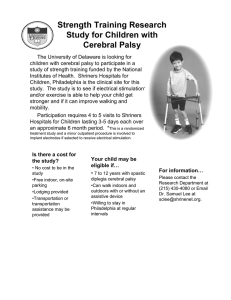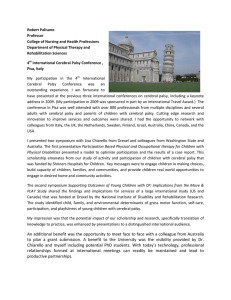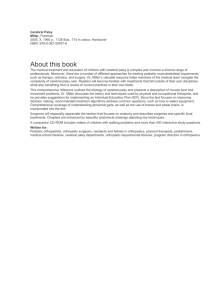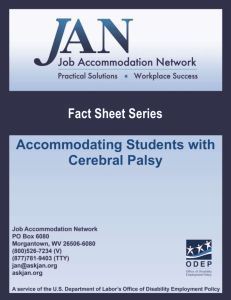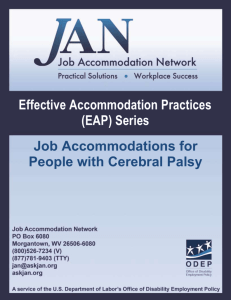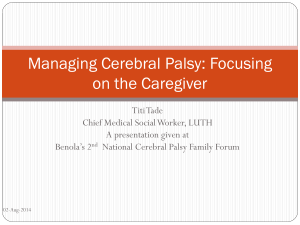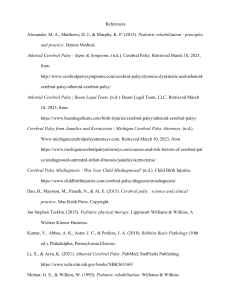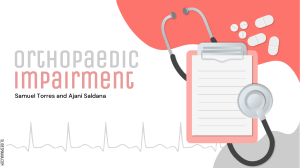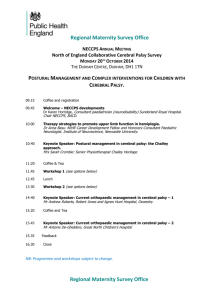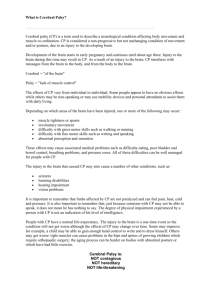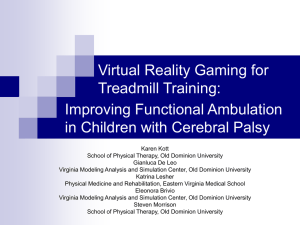Lisa Chiaerllo, PT, PhD, PCS Associate Professor
advertisement
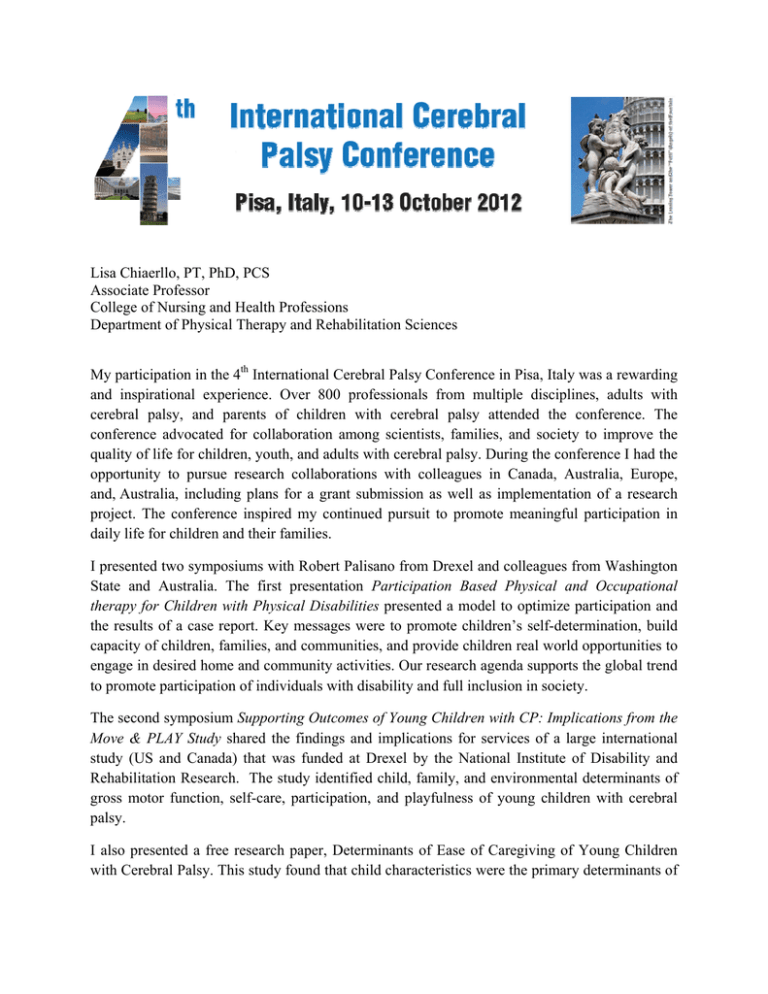
Lisa Chiaerllo, PT, PhD, PCS Associate Professor College of Nursing and Health Professions Department of Physical Therapy and Rehabilitation Sciences My participation in the 4th International Cerebral Palsy Conference in Pisa, Italy was a rewarding and inspirational experience. Over 800 professionals from multiple disciplines, adults with cerebral palsy, and parents of children with cerebral palsy attended the conference. The conference advocated for collaboration among scientists, families, and society to improve the quality of life for children, youth, and adults with cerebral palsy. During the conference I had the opportunity to pursue research collaborations with colleagues in Canada, Australia, Europe, and, Australia, including plans for a grant submission as well as implementation of a research project. The conference inspired my continued pursuit to promote meaningful participation in daily life for children and their families. I presented two symposiums with Robert Palisano from Drexel and colleagues from Washington State and Australia. The first presentation Participation Based Physical and Occupational therapy for Children with Physical Disabilities presented a model to optimize participation and the results of a case report. Key messages were to promote children’s self-determination, build capacity of children, families, and communities, and provide children real world opportunities to engage in desired home and community activities. Our research agenda supports the global trend to promote participation of individuals with disability and full inclusion in society. The second symposium Supporting Outcomes of Young Children with CP: Implications from the Move & PLAY Study shared the findings and implications for services of a large international study (US and Canada) that was funded at Drexel by the National Institute of Disability and Rehabilitation Research. The study identified child, family, and environmental determinants of gross motor function, self-care, participation, and playfulness of young children with cerebral palsy. I also presented a free research paper, Determinants of Ease of Caregiving of Young Children with Cerebral Palsy. This study found that child characteristics were the primary determinants of ease of caregiving. The presentation generated audience discussion and support of further research related to family outcomes. During the conference, a colleague from Australia represented our team and presented two free papers from the International CAPE Research Collaborative on leisure and recreation participation of children and youth with cerebral palsy. This research explored the regional differences in participation across the United States, Canada, and Australia and examined patterns of participation based on children preferences. The session resulted in a lively discussion from the audience on issues surrounding research on the construct of participation. I foresee that future research and services for individuals with cerebral palsy will be positively impacted by the synthesis of research disseminated at the conference.
